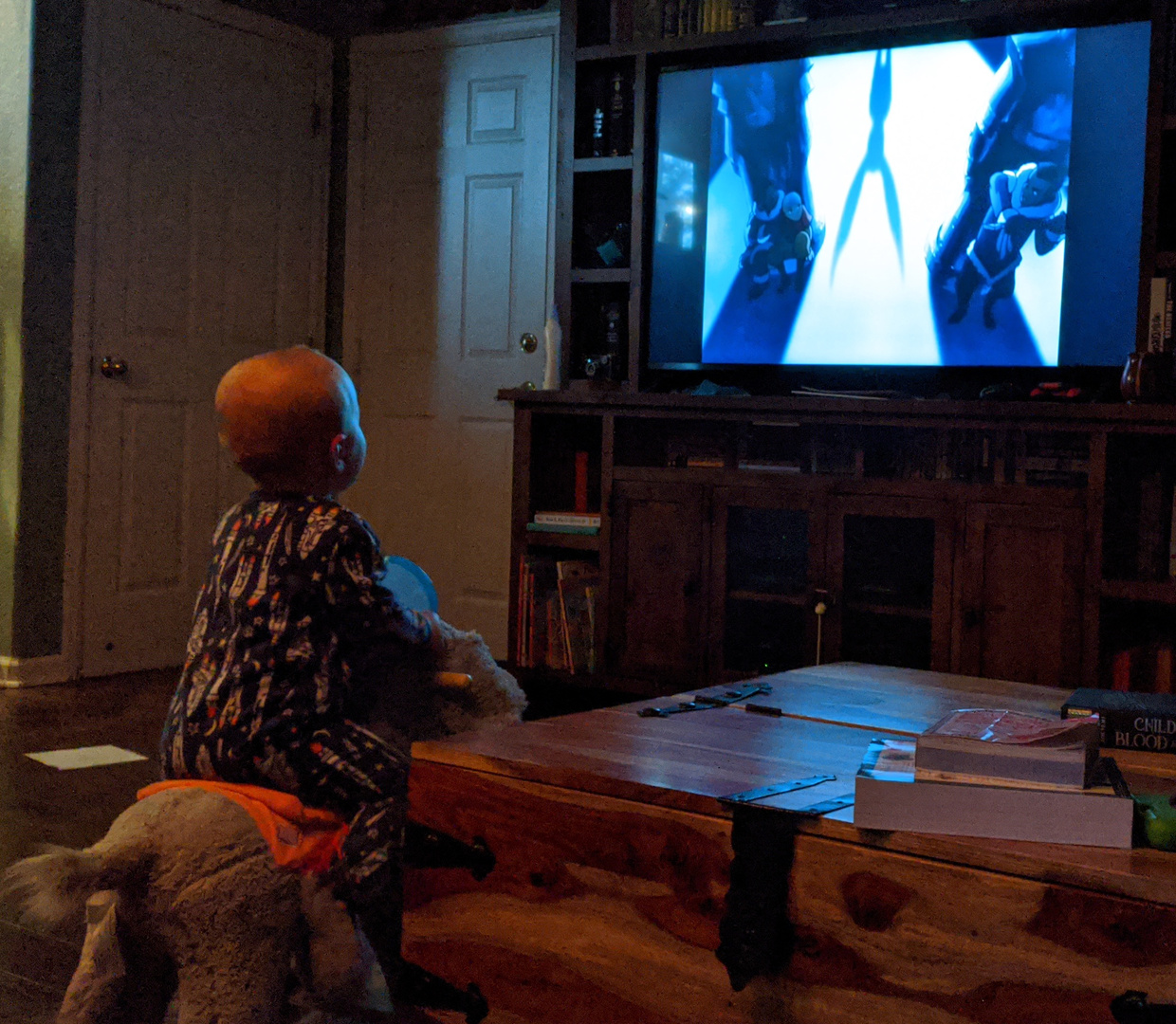By Markie February 26, 2023
A hypothesis: If screens helped children learn to talk, and screen usage increased over the Covid-19 pandemic, then, today’s toddlers would have better language skills than expected. In fact, the opposite is true. “Covid babies” babble less and take fewer conversational turns source
Raise your hand if you feel personally victimized by the screen time guidelines put out by the American Academy of Pediatrics (AAP)? Go ahead and put both hands up if you’ve got a covid baby or two. Every parent I know has some deep-seated guilt about the amount of time that their children spend watching screens. Whether they’re feeling guilty for letting their 2 year old watch 30 min of TV a day, or feeling like a bad parent for giving their kid their phone to stay quiet at a restaurant, or just keeping the TV on most of the time because it feels like the only way to stay sane, everyone feels guilty.
If you’d like to debate how much screen time an 8 year old or a 15 year old should have, that’s not really the focus of this post. What’s really, really important to know is that babies and toddlers under 24 months old should not have any screen time. They can not learn from videos and apps under 18 months old source . The time they spend watching TV or viewing devices is critical to their development in all areas: cognitive (thinking), adaptive (self-help), motor (fine and gross), communication (speech and language), social-emotional (connection and regulation). For children 2-5 years, limit screen time to 1 hour a day of high-quality programming.

If you’re not familiar with the screen guidelines from the American Academy of Pediatrics, here they are.
Recommendations for Families
- For children younger than 18 months, discourage use of screen media other than video chatting.
- For parents of children 18-24 months who want to introduce digital media, select high-quality programming/apps (see resources) and use media together with children.
- For children 2-5 years, limit screen use to one hour a day of high-quality programming, and co-view with children.
- Avoid using media as the only way to calm a child.
- Keep bedrooms, mealtimes and parent-child playtimes screen-free for all. Stop using screens an hour before bedtime and remove devices from bedrooms before bedtime.
- Avoid fast-paced programs, apps with lots of distracting content and violent content.
Why is it so hard to turn off the TV or tablet? The answer to this question actually explains why videos and apps (whether on TV, tablets, or phones) are so particularly bad for babies who need to learn to talk. I actually mentioned it above when talking about giving a child a phone at a restaurant. Why is it so hard to turn off the TV or tablet? Because it keeps the kids quiet.
Oh… quiet is not what we want when teaching kids to talk. They need to play with their mouths: stick their tongue out, blow raspberries, make muhmuhmuh babbles, try intonation that slides up and intonation that slides down, try words. A quiet baby is not learning to talk. Learning to talk requires making sounds.
Well, if kids can’t learn to talk from their educational TV shows, how do they learn? Children learn through fun interactions with meaningful people in their lives. In fact, babies learn to interact before they learn to speak. When your baby finds interacting with you fun and rewarding, they will pay more attention to you, looking at your face to see your expressions and listening to what you say as they watch your mouth move.
At play-day, we’re all about encouraging more fun and play. Play is how kids learn. Play is the “work” of childhood. You can use play to teach anything. Anything. As a parent, you are the best, coolest, most exciting thing ever. It’s the closest most of us will come to being famous. Your baby wants to know where you are and what you are doing at all times. That’s awesome! Your baby will watch you to learn all sorts of things: what’s interesting, what’s funny, the fascinating things grown-ups do, as well as learning all the words and how to talk.
Try an experiment: turn off the TV (remove the background noise and distraction), get on the floor with your baby or toddler and make faces at them. How does your baby respond? Did they laugh? Did they try to copy you? That’s the start of communication: knowing that you take turns back-and-forth and respond to what someone says. Look at all the different expressions they can make. Are they babbling or making other sounds? Babble back and, baby, you got a conversation going.
Now compare that to your child under 24 months old watching TV. Do they make a variety of expressions or mostly a kind of zoned-out look. Do they babble? Does the character on the screen respond to your baby? Are there pauses where they know it’s their turn? Do they copy what is happening on the screen? Babies can’t learn from TV because they don’t learn by passively being told information; they learn through interacting with the special people in their life. Because babies are social first (like other animals) and communicative when socially connected. Because you are your baby’s most important connection, you are also your baby’s best teacher, and by that we mean playmate.
